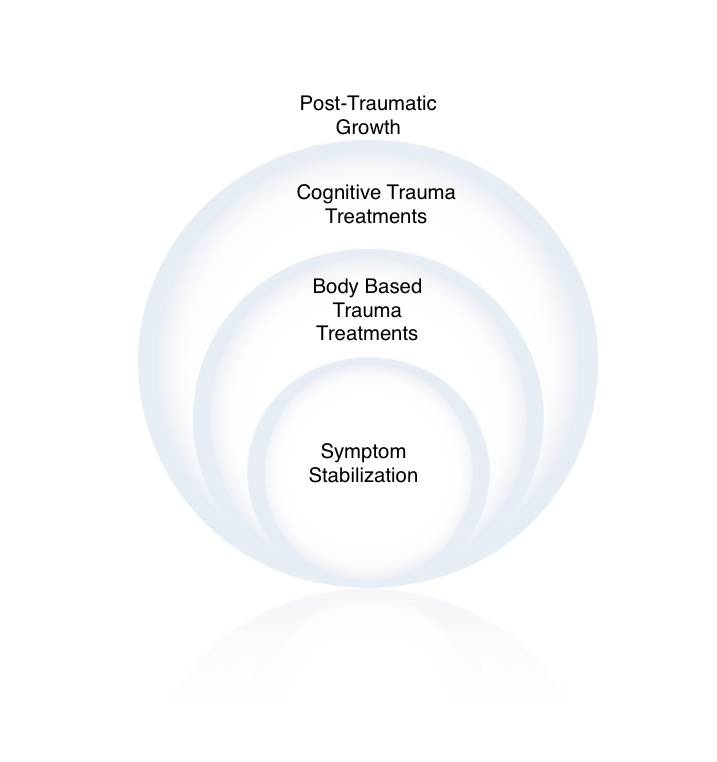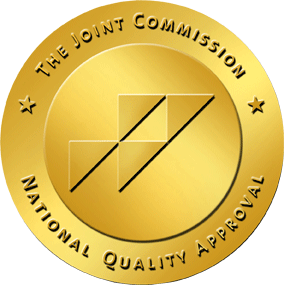Trauma Treatment That Goes Beyond the Surface to Heal the Root Causes of Symptoms
You will experience our one-of-a-kind collaborative clinical model that will address issues from multiple angles.
Redefining Intensive Trauma Treatment
As you heal and develop new skills, you’ll “step down” in frequency and session length.
We will provide weekly updates to your outpatient treatment team throughout your treatment stay for better coordinated and more cohesive care.
If you do not have outpatient providers, our case management team will provide support by connecting you with a comprehensive treatment team.
Accomplish More Together In Less Time
Short term outpatient therapy isn’t always enough to provide the support you need for real, long-term results.
At Skyway, you’ll spend time in partial hospitalization and intensive outpatient care, which provides a higher level of support between outpatient sessions.
Skyway's Treatment Process
Dialectical Behavior Therapy (DBT)
Creating Strategies To Help You Balance Acceptance & Change
Utilizing skills training and support, Dialectical Behavior Therapy is at the core of Skyway’s treatment process.
How Does It Work?
In DBT treatment, you’ll be part of a dynamic community where you’ll learn new skills for changing behaviors, regulating emotions, problem-solving, and strengthening your connection to others and the world.
Frequent one on one sessions with your individual therapist will help support the progress in group therapy.
All of the Skyway team participates in group sessions with their peers to ensure you’re getting the collective wisdom and guidance of clinicians at the top of their field.


Concurrent Trauma Treatments
Our trauma treatments do more than minimize the pain and shame of traumatic stress. You’ll learn how trauma manifests in your brain and body, and learn how to self-soothe, reprocess, and heal.
Building on your Dialectical Behavior Therapy foundation, you’ll participate in at least you will participate in at least one of the following trauma treatments.
CPT is a proven type of group talk therapy that helps you learn to
“become your own therapist.”
CPT can help you create a new understanding of your traumatic events and rewrite your life narrative in a restorative, empowering way.
It’s a very effective process for examining the thoughts and emotions keeping you “stuck” in patterns of anxiety, shame, and guilt.
PE is a type of talk therapy that is proven effective for treating individual trauma such as combat, child abuse, or sexual assault.
You’ll learn to gradually approach traumatic memories, feelings, and situations, using special breathing techniques to self-soothe and gain control of your emotions.
PE can help you un-learn avoidance behaviors (like addictions or overworking) while exploring and redefining feelings of safety through controlled exposure to traumatic memories and triggers, both during sessions and in real-life situations.
Dialectical Behavior Therapy Prolonged Exposure was developed by Dr. Melanie Harned to treat PTSD among higher risk, multi-diagnostic patient populations. DBT PE is delivered in three stages:
First, you’ll learn to control behaviors and find the stability you need to continue the next steps.
Next, you’ll start exposure exercises that help you face your past trauma in imaginary and real situations.
Finally, you’ll return to DBT therapy to learn to shape a life without trauma.
(DBT PE, Harned, 2020)
Led by a certified yoga therapist, trauma-sensitive yoga therapy focuses on body awareness and exploration of sensations, thoughts, and feelings within the present moment. A combination of physical movement, breathing exercises, and meditation techniques are used within sessions to start to re-regulate the nervous system in small, manageable steps.
Emphasis is placed on observing your internal experience in the present moment. Developing this keen awareness and discernment over time gives you the power to choose what practices and techniques will serve you best.
Therapeutic yoga may help reduce stress hormones, bring the nervous system back to balance and develop a sense of safety within the body so that you can get back to your life and live well.
Both exposure therapy and exposure and response prevention (ERP) are efficient and effective treatments for mood/anxiety disorders, traumatic stress disorders, and eating disorders.
At Skyway, we use a specific type of exposure therapy for traumatic stress that involves both in vivo (in real life) and imaginal exposure work to target avoidance of trauma cues and memories, traumatic invalidation, trauma learning and trauma related core beliefs, and unjustified shame and guilt.
Within our mood, anxiety, and trauma tracks, exposure therapy and ERP are used to treat obsessive compulsive disorder (OCD,) mood disorders (i.e. behavioral activation for depressive symptoms,) and eating disorders (targeting pre-binge, pre-purge, and restriction urges as well as avoidant and restrictive food intake (ARFID) and body image disturbance.)
